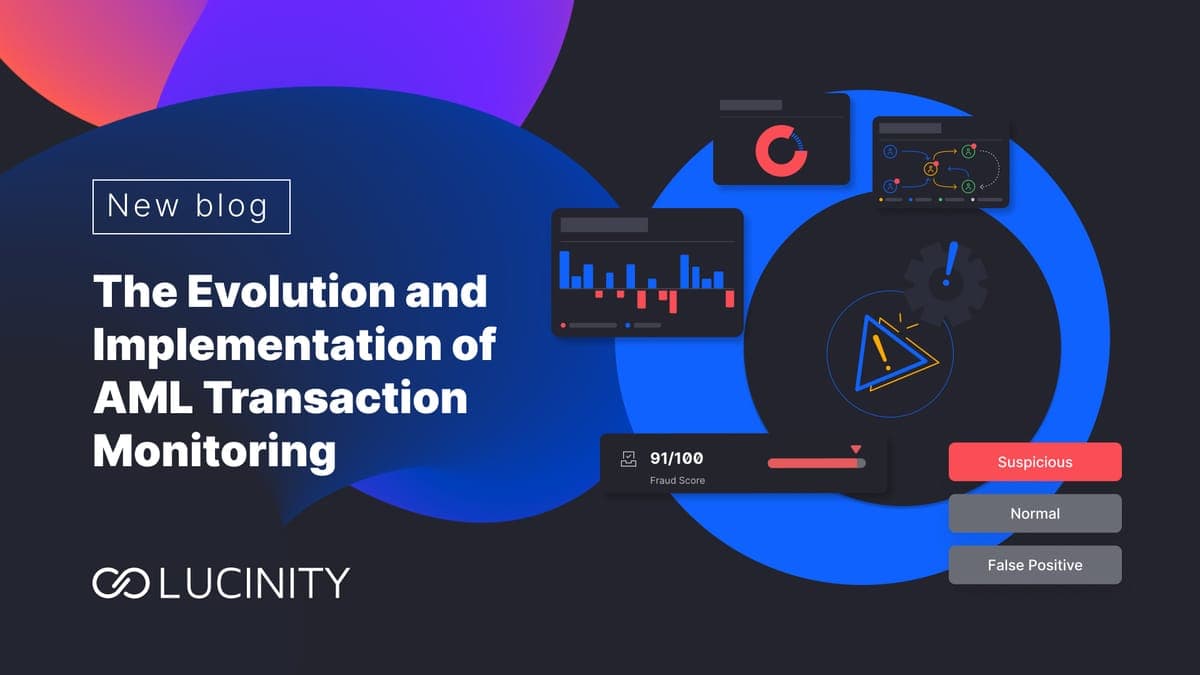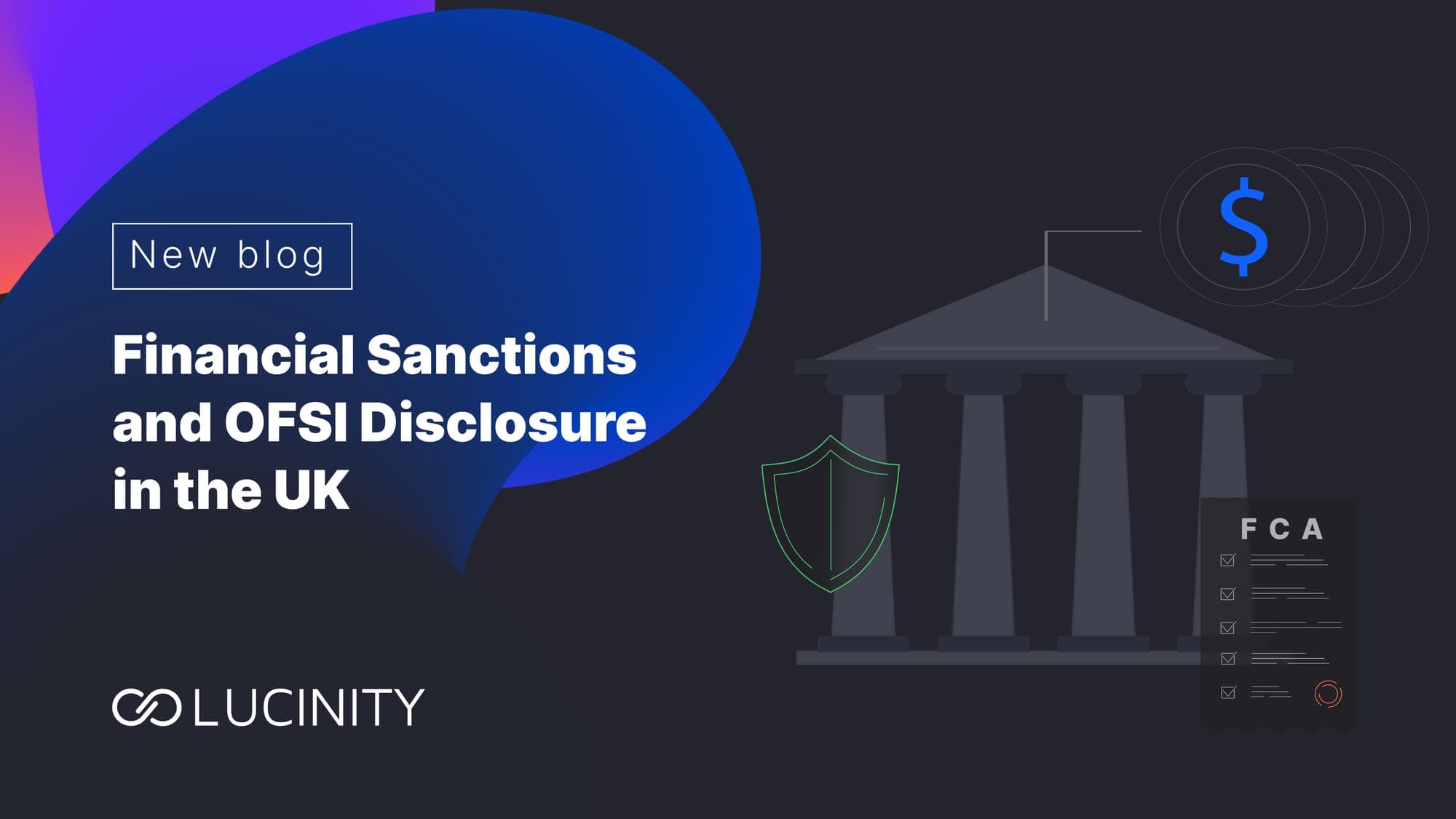Collaboration > Isolation: The Power of Sharing Data for FinCrime Prevention
In this blog, Lucinity discusses the vital role of data sharing in combating financial crime. It emphasizes how collaboration among institutions and governments can amplify crime detection and prevention efforts.
The ability to share data among different institutions and levels of government should not be underestimated. This idea is not new, but it has already brought about impressive changes in sectors that understand the importance of data. Take law enforcement, government agencies, and intelligence gathering as examples. They have embraced innovative solutions that boost their ability to detect and prevent crimes and respond quickly to anticipated illegal activities.
The UK Economic Crime Plan has recently reclassified fraud as a National Security Threat. Remarkably, UK financial institutions allocate an astonishing £30 billion annually to compliance measures. This amount is nearly half the budget for military spending in the United States, a country that even maintains a program for strategic nuclear weapons.
However, it is important to emphasize that the assets seized or recovered from economic crime activities are only a small portion of the abovementioned figure. To address this issue, the UK Government Economic Crime Plan has set a target to recover £1 billion over the next ten years.
Addressing financial crime requires more effective solutions. The increasing costs are primarily influenced by regulatory pressure, inefficiencies in Anti-Money Laundering (AML) measures, and the tendency for each institution or government agency to adopt an isolated approach, where data is challenging to share within organizations and rarely shared externally.
Lucinity has revealed the successful completion of a proof-of-concept project in collaboration with the Bank of International Settlements (BIS) Innovation Hub Nordic Centre. The project aimed to demonstrate the secure sharing of data across different jurisdictions and institutions, highlighting its potential for financial crime investigations.
Global Crime Needs a Global Response
A recent white paper published by The Payments Association, an independent industry body in the UK, underscores the importance of a comprehensive response to combat financial crime. This entails fostering strong partnerships between governments, financial institutions (FI), regulators, and solution providers, all within a data-driven ecosystem. The paper emphasizes that both the required legal framework and technology are already available, paving the way for data sharing and greatly strengthening efforts to prevent financial crime.
Certain jurisdictions have taken the lead in establishing data-sharing frameworks. One notable initiative is Transactie Monitoring Netherlands (TMNL), led by five Dutch banks. The primary goal of TMNL is to enhance transaction monitoring, enabling financial institutions (FIs) to effectively act as gatekeepers to the financial system. By working together, TMNL monitors bank transactions for signs of money laundering (ML), terrorism financing (TF), and other suspicious activities.
Similarly, Singapore recently passed legislation enabling COSMIC (Collaborative Sharing of ML/TH Information and Cases). This platform empowers FIs to analyze customer information and transactions that pose a high risk.
Both these examples also facilitate the secure transfer and analysis of data with government financial intelligence and law enforcement units. This collaborative approach ensures that crucial information is shared between relevant parties, enabling more effective detection and investigation of financial crimes. It is worth noting that these initiatives reflect the corporate and political commitment in these jurisdictions to adopt a cross-sectorial solution. After years of limited progress, there is now a visible willingness to work together across different sectors to address financial crime more comprehensively.
Privacy Enhancing Technologies (PET)
PETs, which stands for Privacy-Enhancing Technologies, is a collection of tools designed to make the most out of data while minimizing the inherent risks associated with its usage. These tools offer various capabilities, such as anonymization techniques to protect privacy or facilitate a collaborative analysis of proprietary datasets. PETs are often referred to as “Partnership Enhancing Technologies” because they have the power to break down barriers and foster collaboration among different parties. They are a valuable tool for leveraging data while respecting privacy and promoting cooperation.
PETs can be applied to various use cases, including:
- Utilizing biometric data for health research and diagnosis
- Addressing crises and analyzing humanitarian data
- Harnessing collective intelligence for crime detection and prevention, as well as identifying voting fraud
In 2019, the Word Economic Forum (WEF) published a report highlighting five PETs capable of sharing insights without disclosing the original data. Some of these techniques, such as Federated Analysis and Homomorphic Encryption, hold great promise for application within compliance contexts. Federated Analysis allows parties to share valuable insights without exposing the underlying data. At the same time, Homomorphic Encryption enables analysis of encrypted data.
Project Aurora
Lucinity recently collaborated with the BIS Innovation Hub Nordic Centre on Project Aurora to combat money laundering across borders and institutions. A notable aspect of this project was the use of synthetic data, which is computer-generated information designed to resemble real-world data. By employing synthetic data, the project aimed to improve the accuracy and effectiveness of the analysis while ensuring the protection of sensitive information and reducing bias.
Lucinity brings a wealth of experience leveraging synthetic data within its Artificial Intelligence (AI) detection models to address bias effectively. In this project, Lucinity created datasets that mimic various financial crime typologies. With Lucinity’s experience in this field, it could offer solutions involving the use of synthetic transaction data for model training. Consequently, better-trained models enable faster and more effective detection of typologies such as Human Trafficking.
While we can still make progress to fully harness the benefits of data sharing, the growing need for advancements in this field is yielding tangible results. Lucinity is proud of its collaboration with BIS on Project Aurora, establishing Lucinity as a pivotal data hub, enhancing effectiveness and efficiency in the fight against financial crime.
Learn more about Project Aurora:



